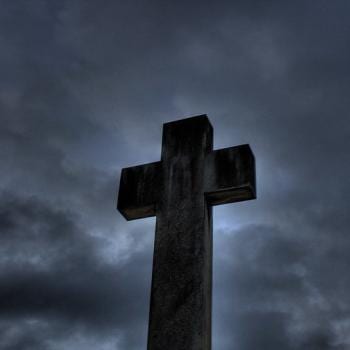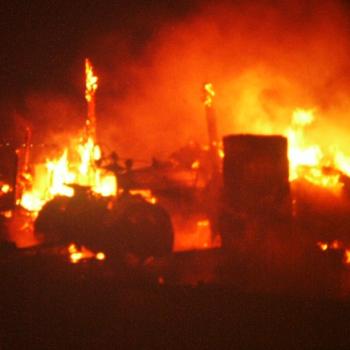To join the conversation about The Geography of Memory, a Pilgrimage Through Alzheimers, or to order a copy, go here.
The Geography of Memory a Pilgrimage Through Alzheimer’s, is a personal memoir, written by a woman whose mother died at the age of ninety after a long slide downward into dementia.
Jeanne Murray Walker writes about growing-up in Nebraska during the 50s against the backdrop of her mother’s slowly worsening dementia. She describes her efforts to participate in her mother’s care, despite the fact that she lived half-way across the country from her mother.
Caring for a dying parent seems to rip open the seams on the bag of memories we all have inside us. I experienced this when my father was dying. Things you thought were lost in the fog of time step out of the backdrop and present themselves to you, complete and fresh. I suddenly remembered my father as he had been when I was a tiny girl. I saw his face, heard his voice from back then. The experience taught me that we don’t forget. We simply file away and lose as the detritus of our daily living piles itself on top what happened back when.
Evidently, Mrs Walker experienced something like that when her mother was sliding down. This book is the result of those awakened memories from her life, built around the backdrop of her mother’s slow leave-taking.
Mrs Walker’s mother was a magnificent woman. She was one of those kind-as-Christmas, tough-as-a-Missouri-rail-spike fundamentalist Baptist women I grew up around and have known all my life. The faith people follow shapes them in powerful ways that are reflected in their overall character. It also infuses them with strength and a kind of power that people without faith, or with only a wishy-washy faith, simply do not have.
This woman lost her husband at a young age, and was faced with supporting her three children back in the 50s and 60s, when career opportunities for women were limited mostly to jobs that paid less simply because they were “women’s work.”
Fortunately, she was an educated woman for those years, a nurse. She told her kids that she would never afflict them with a stepfather and pushed on with the business of bringing home the bacon, paying the bills, and, as we say in this part of the world, raising them right. The Baptist church, with its simple theology and rock-ribbed certainties, formed the spine on which she built this life and raised her kids.
When her only son died of asthma, she did not despair. She kept going and going, right through what sounds like a beautiful second marriage after her children were grown and on into an interested and interesting old age.
Her mind began to betray her when she was in her mid 80s and then slowly unraveled itself as she aged into 90. Even though her daughters managed her care and placed her in what sounds like the best care facilities, she basically traversed this path alone.
But The Geography of Memory is really about Jeanne Murray Walker rather than her mother. It tells the story of how Mrs Walker traveled the country in an exhausting round of visits and suffered the pain of separation from her mother during the time her mother was slowly dying. It describes honestly the confusion, pain, anger and exhaustion Mrs Walker felt while doing this.
It also tells the story of what it was like to be raised by this woman. It is a memoir of a time, place and people that could only exist in the middle of America. The rock-ribbed faith and equally rock-ribbed courage of this woman infuse the daughter’s life with a strength that allows her to step out and move on.
This is a familiar story to me. I know women like Mrs Walker’s mother. I grew up around them. I have also seen their daughters’ ability to separate and spread their wings, something that only really great mothers give their children. Read through that lens, The Geography of Memory is as much a book on the lost art of courageous child-rearing as it is a book about the slow declines of old age.
Mrs Walker’s mother was never diagnosed with Alzheimer’s, and I doubt that was what was wrong with her memory. This thing that happens to most elderly people is a slide backwards into childhood and, ultimately, confusion. It’s as if the brain becomes disorganized; a tangled heap.
I haven’t had a family member with Alzheimer’s, but I’ve seen a lot of it in my constituents. The word “alzheimer” has become a catch-all for the various dementias of old age. But it is a specific thing all its own that does not, so far as I can see, only strike the very elderly. My constituents with Alzheimer’s are different from the way Mrs Walker describes her mother. With them, it’s not so much a matter of losing their way to the bank as it is not knowing what a bank is. Over a period of time, they go blank. Instead of being a tangled heap, their brains seem to be hollowed out.
The reason I’m saying this is because it matters in how we treat our older people.
The Geography of Memory is a beautifully written memoir about a magnificent woman and her magnificent daughter. The lessons it teaches are about living far more than they are about dying. Perhaps its sweetest lesson is that the memories of our lives are worth telling.












